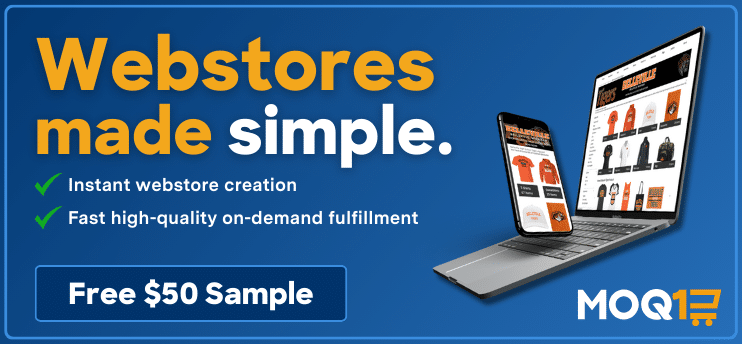“Get ready.” That was the theme of the concluding day of PPAI’s 2024 Product Responsibility Summit. Speakers advised attendees to pay attention to developing legislation – not just in the U.S. and Canada, but in Europe as well – to stay ahead of the curve on reporting requirements, product recalls and more.
“I have a list of 10 things I need to do, and I need to do them today, not tomorrow,” said Debbie Disparte, director of product innovation and sustainability at Koozie Group (PPAI 114187, Platinum), the No. 9 supplier in the PPAI 100.
Establishing clear policies, keeping good records, and constant improvement also emerged as themes. Kayla Kolber, associate manager for product and environmental compliance with PCNA (PPAI 113079, Platinum), the No. 3 supplier in the PPAI 100, said the importance of improving documentation was her biggest takeaway from the event.
“It’s something we already knew, but from here we’re taking away good tools to do better,” she said. “I think a lot of it is navigating the systems that we currently have and their capabilities and then figuring out what we’re going to be doing in the future, the capabilities we don’t currently have, and how are we going to get there?”
Preparing For Changing Regulations
The final day opened with an update on regulations in Europe and North America and how compliance increasingly involves sustainability measures.
“Climate policy and trade policy are becoming intertwined,” said Denise Taschereau, a PPAI Board member and co-founder and CEO of Vancouver-based distributor Fairware (PPAI 262992, Standard-Base). She talked about sustainability regulations in the European Union and how those initiatives are driving the rest of the world. “I think they will be coming to these shores soon,” she said.
She also encouraged attendees to keep exchanging ideas with industry peers, as well as customers. “Don’t underestimate the power of engaging in conversation and sharing what we’re doing”
Karolyn Helda, global services and technical services director at QIMA (PPAI 517075, Standard-Base), agreed that it’s important to keep an eye on legislation both at home and abroad.
“We watch what’s going on in Europe, because what happens in Europe often trickles to other regions, especially in product safety,” she said. “It may impact you if these trends come to the U.S. or Canada.”
Helda recounted a number of updated EU regulations and advised that a digital product passport can be very helpful when it comes to compliance – and may even be required by some jurisdictions before long.
She also noted important deadlines, updates and anticipated changes to existing U.S. regulations:
- A requirement for labeling of battery packages under Reese’s Law into effect this month, and a proposed change to the battery compartments rule for toys is expected to better align with Reese’s Law.
- Look for new CPSC requirements for items containing water beads.
- Changes to the Modernization of Cosmetics Regulation Act of 2022 (aka MoCRA) include new authority for the FDA to access records and mandate a recall, with additional proposed rulemaking to come, including reporting PFAS in cosmetics and listing fragrance allergens on product labels.
- Changes to Prop 65 short form warnings are coming. “You can continue using the short-form labels,” Helda said, “but you might have to make some changes,” such as adding CALIFORNIA WARNING or CA WARNING and naming the specific chemical(s) present.
Helda also addressed the rising tide of extended producer responsibility, or EPR, legislation, which requires producers to be responsible for the entire lifecycle of their products, especially end-of-life disposal.
“We’ve been watching this take shape in Europe for quite some time, and we’re now seeing it take shape in the U.S. in California, Colorado and Oregon,” she said.
So far, five states have passed EPR packaging laws, with legislation pending in several others and some discussion at the federal level.
Rick Brenner, president of Product Safety Advisors (PPAI 668098, Standard-Base) and a co-chair of the event, dug deeper into EPR laws in the U.S., which thus far focus primarily on packaging materials.
“This is a very important topic for you to be aware of, to build into your business plans, because there could be significant financial liability,” he said. “The first thing you can do is check out all your packaging and see what you can do to minimize it and make it more sustainable. It’ll also save you money.”
He urged attendees to look up the Circular Action Alliance, which is the producer responsibility organization already appointed as the PRO for California and Colorado (and the only one to submit a plan for Oregon so far).
Preparing For Product Recalls
Brenner was later joined onstage by Neal Cohen, principal at Neal Cohen Law, for a session on recalls and how companies can prepare for a successful response and minimize liability.
“It’s important to move fast, but it’s also important to move smartly,” said Cohen, explaining that it’s critical to prepare a policy and script now to be ready in case of a recall.
Your company’s response should be very specific and measured, added Brenner. “You need to control everything, especially what the person says,” he said. “Yes, you want to be empathetic and show concern, [but] there should be a very disciplined and scripted response of what they can say, and the escalation process of who does what next.”
Cohen also urged the audience to have a plan for documentation and how returned products will be handled. “Chain of custody is critical,” he said. “You need to control the sample. You want to get the sample back, and then my advice to you is, don’t touch it. If it’s the only one you’ve got, that sample is gold.”
- Cohen also emphasized the importance of lot control during manufacturing to isolate problems instead of having to recall everything.
- During the Q&A, attendees recommended doing mock recalls to prepare.
Making The Business Case For Sustainability
Terry McGuire, senior vice president of supplier relations for HALO (PPAI 106462, Platinum), the No. 2 distributor in the PPAI 100, explained why the Illinois-based company’s investment in environmental, social and governance policy has been good for business.
- “An ESG program will add value to your business. It’s been essential to business for us.”
- “Not only does it have to do good, but it has to show a return on investment.”
- “Each year, we’re seeing more and more business tied to our ESG efforts.”
- “A growing number of buyers are asking us the same questions – they want to make buying decisions based on the sustainability of the products. We’re working with our suppliers to provide answers.”
- “It takes the conversation away from product and price and turns it toward what’s important to the client, and it gives your sales team something compelling to talk about.”
- “If you sit on the sidelines of ESG, you will lose revenue.”
Daniel Blanco, compliance and sustainability specialist with PCNA, said sustainability is not going away. “Change is the only constant, and we’re here to learn,” he added. “The fact that we’re not only learning about our industry but stuff that is outside our realm is only going to make us stronger.”
Focusing On Product Development & Product Safety
The final session explored the role of product safety in product development, with a panel that discussed past projects and best practices.
Denise Pozen, principal of Pozen Services, advised attendees to “practice safety by design” with guidance from the CPSC and Health Canada in mind. She also urged them to consider potential as well as intended users, and to look for safety concerns early in the process.
“Get involved as soon as you can upstream,” she said. “The more time you have to ask questions, the better.”
Jill Rogoz, senior director of compliance at alphabroder (PPAI 156993, Platinum), the No. 2 supplier in the PPAI 100, said, “The first thing you have to do is identify what your risk tolerance is and where the risks are.”
Questions to ask, she added, include:
- Is this a high-risk category?
- Do you know your vendor?
- Do you know your factory?
She also stressed the importance of good documentation and thorough testing through approved labs.
“It’s really important to look at test reports closely,” she said, adding that it’s important to maintain the data in a way that’s easy to access. “Don’t just collect it in a file – review it and look at it and make sure it’s up to date.”
The event closed with a final networking reception to give attendees one more time to connect and discuss what they’d learned over the past two days.
First-time Summit attendee Andrea Kramer, president of City Apparel + Merch (PPAI 242048, Silver), said the event was “amazing” and that she looks forward to increased collaboration between suppliers and distributors when it comes to sharing compliance and sustainability information.
“I’m in data overload – lots of things to think about,” she said. “There are so many tools out there, and now it’s a matter of finding what’s a good fit for our organization. Being B Corp certified, we’ve already started the process, but I love hearing about all the different ways that we can manage compliance and sustainability and all those things.”


